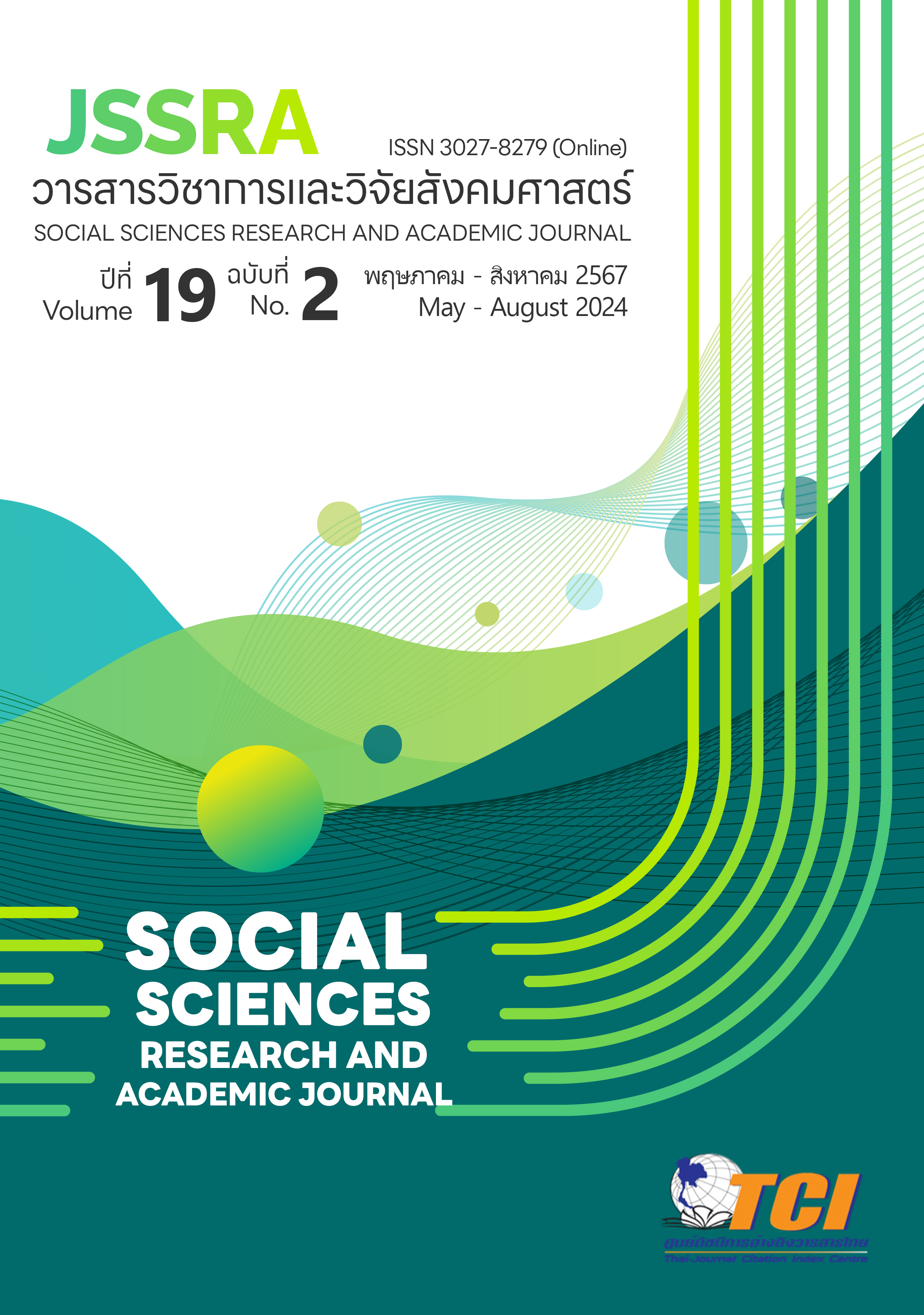ผลการจัดการเรียนรู้แบบสะเต็มศึกษาที่บูรณาการการสร้างข้อโต้แย้ง (6E+A) เพื่อส่งเสริมจิตนิสัยทางสะเต็ม
Main Article Content
บทคัดย่อ
งานวิจัยนี้มีวัตถุประสงค์เพื่อศึกษาผลการจัดการเรียนรู้แบบสะเต็มศึกษาที่บูรณาการการสร้างข้อโต้แย้ง (6E+A) ที่ส่งเสริมจิตนิสัยทางสะเต็ม ของนักเรียนชั้นมัธยมศึกษาปีที่ 6 กลุ่มตัวอย่าง คือนักเรียนชั้นมัธยมศึกษาปีที่ 6 ภาคเรียนที่ 1 ปีการศึกษา 2566 โรงเรียนเมืองตลุงพิทยาสรรพ์ จำนวน 113 คน เครื่องมือที่ใช้ ได้แก่ 1) แผนการจัด การเรียนรู้แบบสะเต็มศึกษาที่บูรณาการการสร้างข้อโต้แย้ง (6E+A) จำนวน 3 แผน 2) แบบประเมินจิตนิสัยทางสะเต็ม และ 3) แบบสัมภาษณ์นักเรียน สถิติที่ใช้ในการวิเคราะห์ข้อมูล ได้แก่ ค่าเฉลี่ย ค่าส่วนเบี่ยงเบนมาตรฐาน การวิเคราะห์ความแปรปรวน และการวิเคราะห์เชิงเนื้อหา
ผลการศึกษาพบว่า จิตนิสัยทางสะเต็มของนักเรียนพัฒนาขึ้น เมื่อเรียนด้วยการจัดการเรียนรู้แบบ สะเต็มศึกษาที่บูรณาการการสร้างข้อโต้แย้ง (6E+A) ที่ส่งเสริมจิตนิสัยทางสะเต็ม และนอกจากนี้ผลการถอดความบทสนทนาการทำกิจกรรมการเรียนรู้ และผลการสัมภาษณ์นักเรียนกลุ่มตัวอย่าง จำนวน 5 คน โดยใช้การวิเคราะห์เชิงเนื้อหา พบจิตนิสัยทางสะเต็มทั้ง 6 ลักษณะ โดยเรียงลำดับการเกิดจิตนิสัยทางสะเต็มจากความถี่มากไปน้อย คือ ความสนใจใฝ่รู้, ความละเอียดรอบคอบในการตัดสินใจ มีความถี่เท่ากับ การยอมรับในเหตุและผล, การคิดแบบบูรณาการ, การสร้างนวัตกรรม และความสามารถในการสื่อสาร
Article Details
เอกสารอ้างอิง
Callick, M., & Coll, R.K. (2012, August). Investigating Socioscientific Issue via Scientific Habits of Mind: Development and Validation of the Scientific Habits of Mind Survey. International Journal of Science Education, 24(12), 1909-1930.
Chanprasert, S. (2013). Science Learning Management and the 21st Century Skill. IPST Magazine, 42(185), 10-13. (In Thai).
Chuaytanee, N. (2019). The Development of STEM Education Integrated Argumentation Learning Model (6E+A) to Enhance STEM Problem Solving Skills of Undergraduate Students. Doctoral dissertation, Ed.D., Srinakharinwirot University, Bangkok. (In Thai).
Chulavatnatol, M. (2013). STEM Education Thailand and STEM Ambassdors. IPST Magazine. 42(185), 14-18. (In Thai).
Costa, A. L. (2008). Describing the Habits of Mind. In Costa, A. L. and Kallick, B. (Eds.), Learning and Leading with Habits of Mind, (pp. 15-38). USA: ASCD.
Gonzalez, H. B. and Kuenzi, J. J. (2012). Science, Technology, Engineering, and Mathematics (STEM) Education: A Primer. Retrieved June 10, 2014, from, www.fas.org/sgp/crs/misc/R42642.pdf
Karunram, A. (2018). Development of the STEM Learning Model to Enhance the STEM Habits of Mind among Seventh Grade Students. Doctoral dissertation, Ed.D., Srinakharinwirot University, Bangkok. (In Thai).
Karunram, A., Khumwong, P., Boonprakob, M. and Prakobpol, T. (2018). STEM Habits of Mind; It’s Meaning and Component. Journal of Graduate Studies in Northern Rajabhat Universities, 8(15), 63-76. (In Thai).
Khemkong, S. (2017). The Development of Grade 11th Student'scientific Reasoning Ability by using Inquiry-Based Learning. Master thesis, M.Ed., Kasetsart University, Bangkok. (In Thai).
Labov, J. B., Reid, A. H. and Yamamoto, K. R. (2010, March). Integrated Biology and Undergraduate Science Education: a new biology education for the 21st Century?. CBE Life Science Education, 9(1), 10-16.
Ministry of Education. (2016). STEM Education. Retrieved August 31, 2016, from https://www.moe.go.th
Royal Academy of Engineering. (2014). Thinking Like an Engineering Implication for The Education System. Retrieved October 20, 2015, from www.raeng.org.uk/think.likeengineer
Suksawang, S. (2018). Different Between Creativity and Innovation. Retrieved April 20, 2018, from https://www.sasimasuk.com/
The Institute for the Promotion of Teaching Science and Technology (IPST). (2012). Measurement and Evaluation in Science. Bangkok: SE-Education.
Tishman, S. (2000). Why Teach Habits of Mind?. In Costa, A. L., & Kallick, B. (Eds.), Discovering & Exploring Habits of Mind, (pp. 41-51). USA: ASCD.
Wantisuksombut, N. (2004). The Development of Computer Instructional Model Based on Constructivist Approach using Problem Solving Learning Management for the Second Key Stage Students According to Basic Education Curriculum B.E. 2544. Master thesis, M.Ed., Chulalongkorn University, Bangkok. (In Thai).


